Fresh German milestones to come
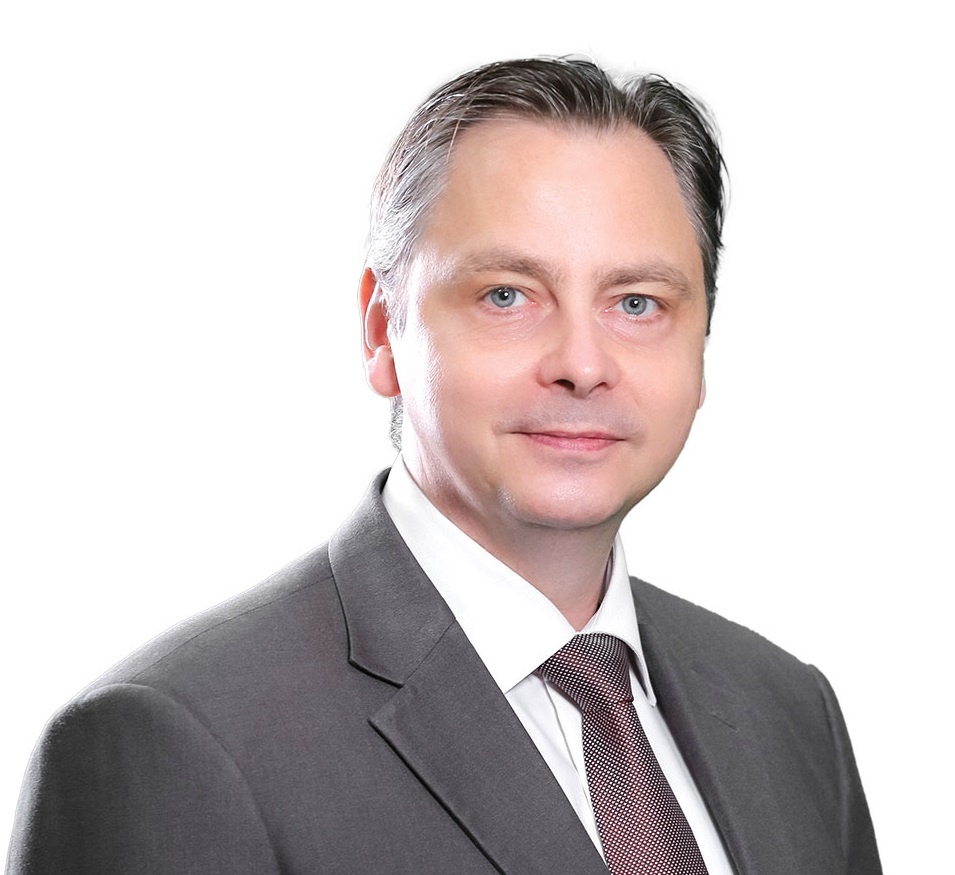 |
| Marko Walde - Chief representative Delegation of German Industry and Commerce in Vietnam (AHK Vietnam) |
Germany is Vietnam’s largest trading partner in the EU, and Vietnam has also become one of Germany’s largest trading partners in Southeast Asia. The European Union-Vietnam Free Trade Agreement (EVFTA), along with the Comprehensive and Progressive Agreement for Trans-Pacific Partnership, form part of a new generation of FTAs with a high level of trade and investment liberalisation.
We expect German investors to increase investments based on the improved conditions and favourable environment in Vietnam. There will be many foreign direct investments flows for high-valued projects in Vietnam. With the EVFTA, Vietnam will benefit significantly from well-known German technology in management and training, more value-added production, and less material and resource waste.
The EVFTA has shown Vietnam’s commitment to protecting people’s basic rights at work and in the environment. It is an excellent foundation for Vietnam and will make it more attractive as an ideal investment location.
In our AHK World Business Outlook 2022, 73 per cent of German companies in Vietnam said the implementation of the EVFTA has increased their competitiveness. With Vietnam’s participation in free trade agreements, German companies are optimistic about investment and business opportunities in the country.
The same report indicated that 38 per cent of German businesses in Vietnam are feeling positive and expect a better scenario for their businesses in 2023. Despite challenges such as demand, exchange rates, and supply chain disruption, 82 per cent of German participants intended to invest further in the next 12 months.
However, German businesses are still facing challenges due to the global economic downturn, and inflation, geopolitical conflict, supply chain security, and the energy crisis.
Due to disrupted supply chains, 89 per cent of surveyed German businesses in China are trying to find a new supplier, and 64 per cent need to diversify their production. It is estimated that about 5,200 German companies are operating in China, and several are embracing diversifying investment locations. Some are considered South Asian countries, including Bangladesh, Sri Lanka, and India, but 95 per cent have ASEAN in mind.
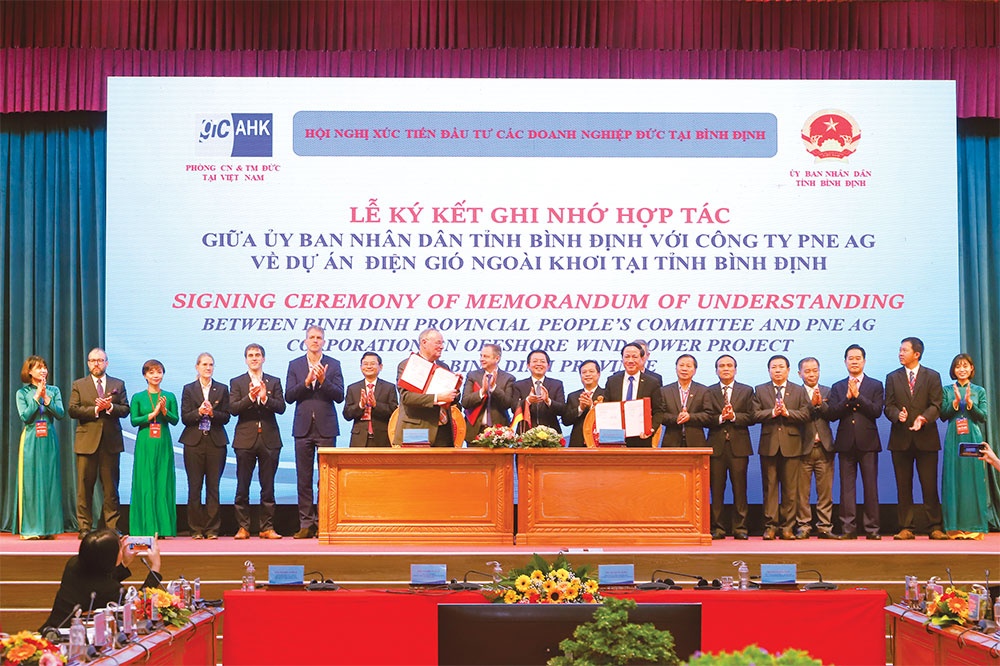 |
Over the past year, several small- and medium-sized German corporate representatives have come to Vietnam to explore its potential. With more foreign direct investment flows from high-quality German projects, Vietnam will get considerable long-term benefits from well-known German technologies and more value-added production.
During the official visit of German Chancellor Olaf Scholz and his delegation of 12 German companies, the chancellor confirmed that German groups wanted to diversify in Asia and that Vietnam was a potential manufacturing hub. The visit is a chance to open a new chapter in the cooperation and friendship between the two countries.
Vietnam will also gain advantages in terms of attracting German and European investors after the German Supply Chain Due Diligence Act comes into force from 2023. It includes stricter standards for businesses participating in the German supply chain.
This act aims to improve human rights protection in global supply chains, prevent child and forced labour, and prohibit substances harmful to the environment. Anti-discrimination practices, living wages, and decent working hours are also at the heart of the act. It also requires German businesses to develop an effective risk management mechanism for their supply chains and integrate it into production and business cycles.
In addition, cooperation in sustainable energy has always been one of the top priorities in the relationship between Vietnam and Germany, as Vietnam has shown a strong determination to develop renewable energy with a long-term vision of sustainable energy transition.
In November 2022, Binh Dinh’s People Committee and PNE AG signed a MoU on cooperation in an offshore wind power project. The 2,000MW venture is expected to have $4.6 billion in investment. It was a remarkable milestone after more than two years of work. PNE AG now hopes to turn Vietnam into a competitive wind power supplier in the southeastern region and beyond.
A new structure for Vietnam’s energy sources with an increased proportion of clean energy will soon be implemented. The Vietnamese government intend to create a more favourable environment and incentives for businesses to use renewable sources, including natural hydro, solar, and wind power.
Most importantly, green energy will be one of the crucial factors affecting the investment decisions of German and international investors in the future. In December, Vietnam signed a $15.5 billion energy deal with the G7 bloc to help wean Vietnam off coal. Under the deal, Vietnam commits to targets that will eliminate 500 megatonnes of emissions by 2035, and the agreement will help Vietnam build a 21st-century power sector.
 | German groups expanding major operations in Vietnam The bilateral strategic partnership between Vietnam and Germany is witnessing a rise in trade and investment, amid investors from the latter showing a growing interest in the former and both nations expecting a brighter cooperation outlook. |
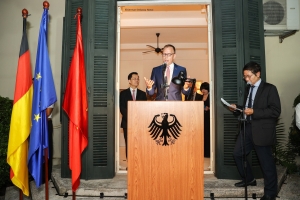 | Germany to support Vietnam in fostering socioeconomic growth Germany is willing to make significant efforts to support Vietnam in achieving its socioeconomic growth goals in collaboration with the target of carbon neutrality by 2050 and the phase-out of coal-fired energy by the 2040s. |
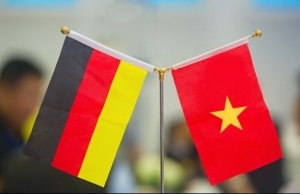 | Vietnamese-German partnerships further flourish Economic ties between Vietnam and Germany remain in good shape, as evidenced by the latest connection activities. |
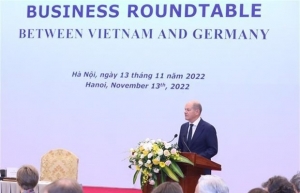 | Vietnamese, German leaders hope for stronger economic ties A business roundtable between Vietnam and Germany was held in Hanoi on November 13 under the co-chair of Prime Minister Pham Minh Chinh and German Chancellor Olaf Scholz. |
What the stars mean:
★ Poor ★ ★ Promising ★★★ Good ★★★★ Very good ★★★★★ Exceptional
Related Contents
Latest News
More News
- Hermes joins Long Thanh cargo terminal development (February 04, 2026 | 15:59)
- SCG enhances production and distribution in Vietnam (February 04, 2026 | 08:00)
- UNIVACCO strengthens Asia expansion with Vietnam facility (February 03, 2026 | 08:00)
- Cai Mep Ha Port project wins approval with $1.95bn investment (February 02, 2026 | 16:17)
- Repositioning Vietnam in Asia’s manufacturing race (February 02, 2026 | 16:00)
- Manufacturing growth remains solid in early 2026 (February 02, 2026 | 15:28)
- Navigating venture capital trends across the continent (February 02, 2026 | 14:00)
- Motivations to achieve high growth (February 02, 2026 | 11:00)
- Capacity and regulations among British areas of expertise in IFCs (February 02, 2026 | 09:09)
- Transition underway in German investment across Vietnam (February 02, 2026 | 08:00)

 Tag:
Tag:




















 Mobile Version
Mobile Version